There's a Book for That: National Poetry Month
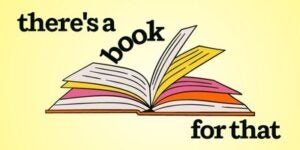 “A poem begins as a lump in the throat, a sense of wrong, a homesickness, a lovesickness.”
“A poem begins as a lump in the throat, a sense of wrong, a homesickness, a lovesickness.”
―
Welcome to National Poetry Month! April is rich with inspiration for poetry lovers – with poetry readings, workshops, and new books from debut and beloved poets alike. Whether you are well-versed or simply poetry-curious, we invite you to dip into the following standout, recently published, volumes:

A fiery second collection of poetry from the acclaimed Indigenous New Zealand writer that U.S. Poet Laureate Joy Harjo calls, “One of the most startling and original poets of her generation.” At once a coming-of-age and an elegy to the traumas born from colonization, especially the violence enacted against indigenous women, Rangikura interrogates not only the poets’ pain, but also that of her ancestors.

Whether it’s the fireflies of a Louisiana summer caught in a mason jar (doomed by their collection), or his grandmother, Mama Annie, who latches the screen door when someone steps out for just a moment, all that makes up our flickering precarious joy, all that we want to protect, is lifted into the light in this moving book. Stones becomes an ode to Young’s home places and his dear departed, and to what of them—of us—poetry can save.
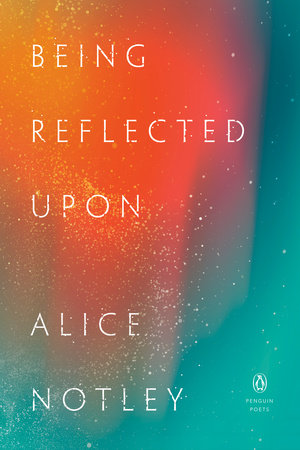
Notley’s new collection is at once a window into the sources of her telepathic and visionary poetics, and a memoir through poems of her Paris-based life between 2000 and 2017, when she finished treatment for her first breast cancer. As Notley wrote these poems she realized that events during this period were connected to events in previous decades; the work moves from reminiscences of her mother and of growing up in California to meditations on illness and recovery to various poetic adventures in Amsterdam, Berlin, Prague, and Edinburgh. It is also concerned with the mysteries of consciousness and the connection between the living and dead, “stream-of-consciousness” teasing out a lived physics or philosophy.

Following several of his internationally acclaimed novels, A Year of Last Things is Michael Ondaatje’s long-awaited return to poetry. Moving from a Sri Lankan boarding school to Molière’s chair during his last stage performance, to Bulgarian churches and their icons, to the California coast and his beloved Canadian rivers, Michael Ondaatje casts a brilliant eye that merges memory with the present, in the way memory as the distant shores of art and lost friends continue to influence everything that surrounds him.
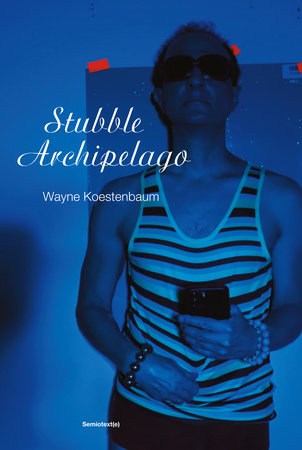
This book of thirty-six poetic bulletins by the humiliation-advice-giver Wayne Koestenbaum will teach you how to cruise, how to dream, how to decode a crowded consciousness, how to find nuggets of satisfaction in unaccustomed corners, and how to sew a language glove roomy enough to contain materials gathered while meandering. Koestenbaum wrote many of these poems while walking around New York City. He’d jot down phrases in a notebook or dictate them into his phone. At home, he’d incorporate these fragmented gleanings into overflowing quasi sonnets. Therefore each poem functions as a coded diary entry, including specific references to sidewalk events and peripatetic perceptions.

Celebrate Robert Frost’s 150th birthday with a deluxe keepsake edition featuring 16 of his greatest poems—with brilliant essays highlighting his special genius and the power of memorization to unlock the magic of his language. In short accompanying commentaries, Parini illuminates the stylistic and imaginative features of each of the poems, drawing in biographical material from Frost’s life to provide further context. “The goal of this little book is to encourage readers to slow down—to listen to Frost’s words and phrases, to locate their deepest rhythms, and hear the tune of each poem as it unfolds. . . . Memorizing a poem can teach us much about a poem’s structure and argument, and about the resonance of particular words. And best of all, memorization makes a poem part of our inner lives. Once committed to memory, a poem is available to us for recall at any time—and the occasions for remembering it will make themselves known to us. It isn’t something we have to work at.”
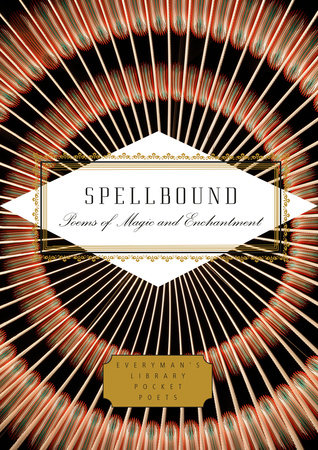
A unique anthology of poems from around the world and through the ages that celebrate magic and magicians. Venerable literary wizards such as Shakespeare’s Prospero, Tennyson’s Merlin, and T. S. Eliot’s Mr. Mistoffelees make appearances here alongside illusionists and prestidigitators in Kay Ryan’s “Houdini,” Ted Kooser’s “Card Trick,” Charles Simic’s “My Magician,” and Richard Wilbur’s “The Mind-Reader.” Here is a treasury of poetic spells, charms, and incantations, from Elise Paschen’s “Love Spell,” Robert Graves’s “Love and Black Magic,” and Lu Yu’s “The Pedlar of Spells,” to a Cherokee “Spell to Destroy Life.” And here, too, are all sorts of sorcerers, conjurers, enchantresses, and witches, as captured in Emily Dickinson’s “Best Witchcraft is Geometry,” Michael Schmidt’s “Nine Witches,” and H. D.’s “Circe,” keeping company with magical poems from cultures around the world.
Everyman’s Library’s Pocket Poets are pocket-sized hardcovers that feature acid-free cream-colored paper bound in a full-cloth case with two-color foil stamping, decorative endpapers, a silk ribbon marker, a European-style half-round spine, and a full-color illustrated jacket.
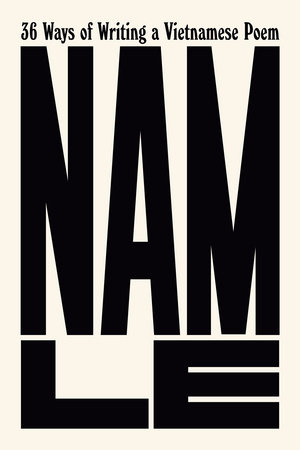
In his first international release since the award-winning, best-selling The Boat, Nam Le delivers a shot across the bow with a book-length poem that honors every convention of diasporic literature—in a virtuosic array of forms and registers—before shattering the form itself. In line with the works of Claudia Rankine, Cathy Park Hong, and Theresa Hak Kyung Cha, this book is an urgent, unsettling reckoning with identity—and the violence of identity.
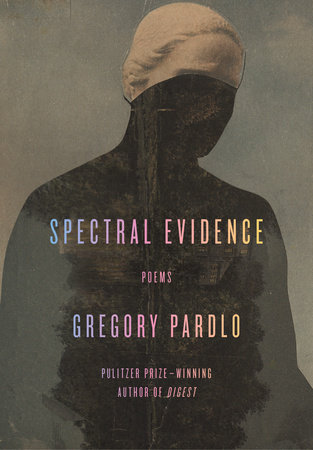
Elegant, profound, and intoxicating—Spectral Evidence, Gregory Pardlo’s first major collection of poetry after winning the Pulitzer Prize for Digest, moves fluidly among considerations of the pro-wrestler Owen Hart; Tituba, the only Black woman to be accused of witchcraft during the Salem witch trials; MOVE, the movement and militant separatist group famous for its violent stand-offs with the Philadelphia Police Department (“flames rose like orchids . . . / blocks lay open like egg cartons”); and more.
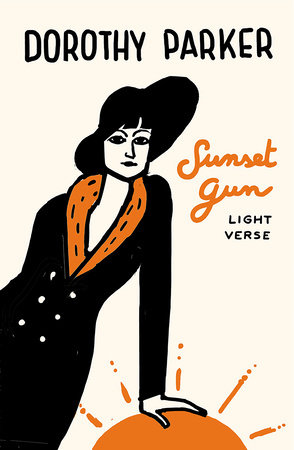
One of the Jazz Age’s most beloved poets, Dorothy Parker earned her reputation as the wittiest woman in America with her popular light verse, which was regularly published in Vanity Fair, Life, and The New Yorker. Her debut poetry collection, Enough Rope, was a runaway bestseller, and she followed it up in 1928 with the equally delightful collection Sunset Gun. The poems gathered here range from barbed satires to light-hearted laments, all laced with Parker’s unmistakable sense of humor, one that manages to be both cynical and sparkling.
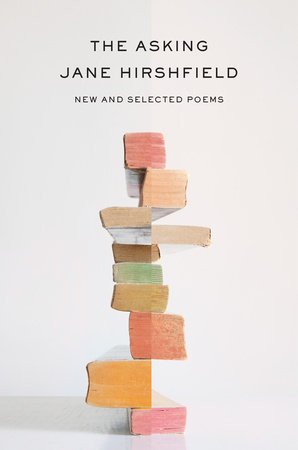
The long-awaited new and selected collection by the author of “some of the most important poetry in the world today” (The New York Times Magazine), assaying the ranges of our shared and borrowed lives: our bonds of eros and responsibilities to the planet; the singing dictions and searchlight dimensions of perception; the willing plunge into an existence both perishing and beloved, dazzling “even now, even here.”

The winner of Sweden’s most prestigious literary award makes her American debut with an epic, multigenerational novel-in-verse about two Sámi families and their quest to stay together across a century of migration, violence, and colonial trauma.
Sign-up here for Knopf Poetry Poem-A-Day!
For more on these and other relevant titles visit National Poetry Month
There’s a Book for That! is brought to you by Penguin Random House’s Sales department. Please follow our Tumblr by clicking here—and share this link with your accounts: theresabookforthat.tumblr.com. Thank you!
Did you see something on the news or read about something on your commute? Perhaps you noticed something trending on Twitter? Did you think: “There’s a book for that!”? Then please, send it our way at theresabookforthat@penguinrandomhouse.com
